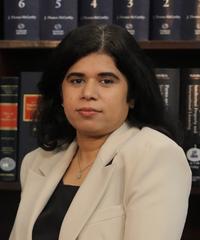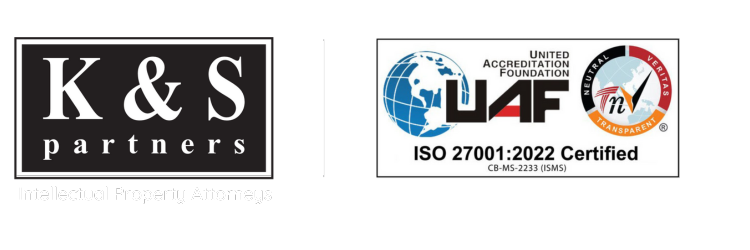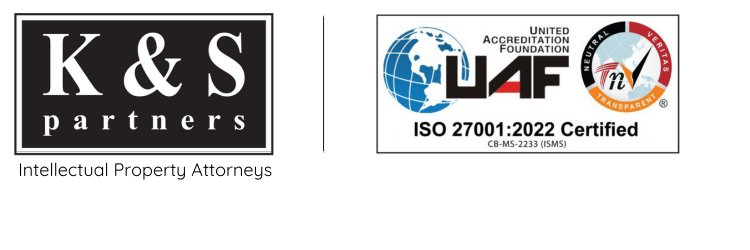Chemistry & Pharma Practice


PROFESSIONALS
YEARS EXPERIENCE
AWARDS
Creating & Defending Chemistry & Pharma Patents
The pharmaceutical & chemistry practice serves clients from pharma innovator & chemical companies and multinationals, international & domestic research institutes and universities, as well as dynamic start-ups.
Focused Industry Expertise
Pharmaceuticals
Biopharma
Chemicals
Textiles
Polymers
Glass
Therapeutics
Cosmetics
FMCG
Oil & Petrochemicals
Medical Devices
Services Offered in Chemistry & Pharma Patents Practice
Advisory
Searching and analytics: prior art searches, invalidity searches, freedom to operate (FTO) and due diligence, landscape analysis, competitor watch
Opinions on patentability, invalidations, FTO and product clearances, enforceability of patent claims, infringement analysis, etc.
Regulatory – drug & medical devices
Foreign filing license
Strategic counseling on licensing and enforcement
Opinions on Bolar provision and compulsory licensing
Prosecution
Drafting of patent specifications for India, PCT, and countries outside India
Filing of patent applications, prosecution (evaluating examination reports and responding to technical and legal requirements, oral hearings), procurement and maintenance of patents (both in India and outside India)
Handling issues pertaining to biodiversity law
Managing global patent portfolios
Protection
Expertise in handling multiple contentious proceedings such as pre-grant /post-grant oppositions before IPO, revocations & appeals, and infringement proceedings before various courts in India
Defending applicants in opposition, revocation and counter-claim on validity of patents during enforcement proceedings
Due diligence on Infringers, Strategy and Enforcement of patentee’s rights by initiating infringement proceedings
Filing oppositions, invalidity actions, revocation proceedings to competitor’s patents
Dispute resolution
Transactional
Patent due diligence in M&A transactions, and technology transfer agreements
Licensing– negotiating competitive licensing and distribution agreements
Assignment and transfer of rights
Employment agreements, such as confidentiality agreements, agreements on the ownership of processes and research products as well as non-compete agreements
Chemistry & Pharma Patents Practice Attorneys

Priyanka Chopra
Partner | Practice Lead (Life Sciences)

Amit Koli
Partner

Amrish Tiwari
Partner

Dr. Jyoti C Ramani
Partner

Naresh Kumar Jonnalagadda
Partner
AWARDS & RECOGNITIONS






MEMBERSHIPS










Frequently Asked Questions
A patent is a statutory privilege granted by the government to an inventor for a fixed and limited period of years to exclude others from making, using, offering for sale, selling or importing a product or a process, based on the patented invention, without the inventor’s prior permission. It is granted for an invention that is new, involves an inventive step and is capable of industrial application.
A patent application should be filed at the earliest possible without any delay. A delay in filing the application may pose the risk of losing the priority date if a third-party application for the same invention pre-empts such filing.
Patents are a crucial means to incentivize research and development by allowing inventors to capture the benefits of an invention for a limited period of time. The promise of such benefits is an important motivation for the expenditure of scarce resources and time with significant opportunity costs. A patent is valid for 20 years from the date of filing of the patent application, provided the required annual maintenance fees are paid on time. Following the expiry of this time period, the invention passes into the public domain and anyone is free to use the invention including manufacture, sale, etc.
This exclusive right is granted in exchange for complete disclosure of the invention to the public by providing exhaustive and accurate details of the invention in the patent specification. Such disclosure should be in sufficient detail to enable a person skilled in the technology to perform the invention. Moreover, this exclusive right of exploitation as well as enforcement of rights granted under a patent, are territorial rights and are applicable only in the country which issues the patent.
An invention, to be patentable, should necessarily meet the following universal criteria:
1. Novelty: The invention must be new, which means it should not have been published (known to the general public) anywhere in the world before filing the patent application.
2. Inventive step: The invention should not be obvious to a person skilled in the art and should add to technical advancement to the existing knowledge. Therefore, the invention ought to be something more than what a person skilled in the art could ordinarily be expected to envisage in the field of the invention. To judge the inventive step precisely, the question to be answered is- “Would a person having ordinary skill in the art have thought of the alleged invention?” If the answer is ‘No’, then the invention is non- obvious. This however does not mean that an inventive step cannot be acknowledged for simple inventions.
3. Useful/capable of industrial application: An invention, to be patentable, must be capable of industrial application/utility.
An invention which meets the above three criteria for patentability, may still be non-patentable because of certain preclusions depending on individual national laws and practices. Article 27.2 of the Agreement on Trade Related Aspects of Intellectual Property Rights (TRIPs) allows member countries to exclude from patentability such inventions which may offend the morality or public order of that society.
An application for a patent may be made by any of the following persons either alone or jointly with another
- True and first inventor
- True and first inventor’s assignee
- Legal representative of deceased true and first inventor or his/her assignee.
The term “person” as defined in the Patents Act includes Government [Section 2(1)(s)]. Assignee can be a natural person or other than a natural person like registered company, research organization, educational institute, or Government [Section 2 (1)(s)]. Assignee includes assignee of the assignee also (Section 2(1)(ab)).
A ‘proof of right’ is required to be submitted by the assignee to establish assignment by the inventors to the assignee. Such proof of right may be submitted either by a prescribed form under the Patents Act executed by the inventors, or by way of an executed deed of assignment.
Legal representative means a person who, in law, represents the estate of a deceased person [Section 2 (1)(k) of the Patents Act]. In such a case, the person should file the death certificate along with other appropriate legal instruments as proof of right.





